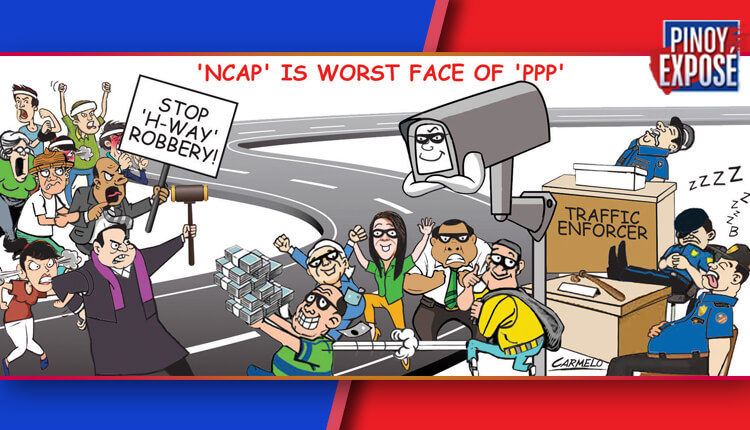FINALLY, a cross-section of Philippine society has come together to question the legality, nay even the morality, of the ‘no-contact apprehension program’ (NCAP) presently being implemented in several cities in Metro Manila between the concerned local government units (LGUs) and a private contractor whose basis of credibility, many now also realized, is its strong “connection” with the former bosses at the Department of Transportation under Secretary Art Tugade.
This week and thankfully, the Supreme Court has ordered the 5 cities currently on board with the NCAP ‘Mafia’— Manila, Quezon City, Parañaque, Valenzuela and Muntinlupa– to submit their explanations why the petition for a temporary restraining to stop NCAP brought by the aggrieved public transport sector should not be granted (although Muntinlupa said the scam, err, scheme, is yet to be implemented there as of this writing).
Previously, we recall that only the Lawyers for Consumer Safety and Protection (LCSP) under former LTFRB board member, Atty. Ariel Inton, and a few members of the media, are by their lonesome in condemning the NCAP.
Now, even newly-appointed Land Transportation Office (LTO) chief, Atty. Teofilo Guadiz III, has called on the LGUs concerned to stop the NCAP, temporarily, he says while a “uniform guideline” favorable to all stakeholders are being drafted.
Of course, Guadiz may have been sounding diplomatic with his pronouncements but the veteran transport official that he is, he surely knows that NCAP has failed to instill road discipline and worse, has become another source of illicit money between the private contractor and some corrupt elements in the concerned LGUs.
No wonder then that his appeal for the temporary stop of NCAP has fallen on deaf ears among the LGUs. And why not? Making money out of traffic violations has never been this easy for the LGUs!
Throwing his own opinion on the matter, Albay representative, Joey Salceda, a veteran of many congressional hearings where any stench of corruption failed to escape his attention, noted the dubious legality of NCAP, aside from its potential violation of the people’s constitutional right to due process.
For indeed, where can we find a ‘PPP’ (public-private partnership) where the dice is heavily loaded in favor of the private contractor and not the government?
To our mind, this is the worst of the PPP, a bastardization where a private contractor gets to use the power and authority of the government, the LTO in particular, in extracting money from their hapless victims.
After some 4 years since it was first implemented in Parañaque City, NCAP has victimized millions of motorists and both private and public transport owners.
And looking back in this very short period of time, NCAP has failed to instill road discipline but instead, made a millionaire to a narrow group of people whose main investment is their political capital by being close to the DOTr of Art Tugade and some close circuit television cameras—and at the expense of millions of motorists.
We reiterate: NCAP is a scam. And anyone saying otherwise is clearly benefiting materially from its continuity.



